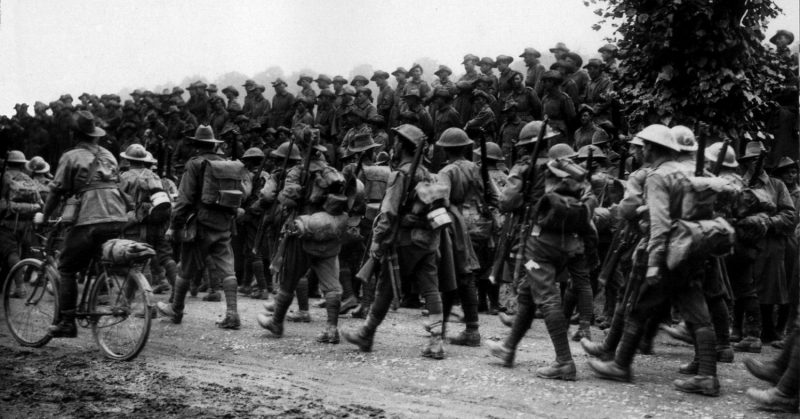Hundreds of school children in Victoria, Australia, gathered to pay tribute to the Australian soldiers in World War II that lost their lives in what is known as the Battle for Australia.
The Battle consists of numerous conflicts between the Allies and the Imperial Japanese Army.
“It was a bit scary of course, the Japanese were moving very strongly,” said Alan Day, who served in Borneo and survived 54 bombings while he was stationed in Darwin as an RAAF medical orderly.
“We were told there were few thousand Japanese very close to landing in Darwin, and if that was true, there was practically nothing to protect Australia at the time.”
The Battle for Australia includes the fall of Singapore, the fighting in Malaysia, the bombing of Darwin, the Kokoda Track and the battle of the Coral Sea.
As the war was breaking out in the Pacific, most of Australia’s forces were fighting in Europe.
John Coulson, chair for Battle for Australia, said that there was a time when the nation’s defenses were so weak the government was resigned to surrendering most of the country without a fight.
“That’s how serious the threat was as far as we were concerned.”
“They didn’t want to alarm people in the south of Australia because everybody thought the Japanese were going to land and take over Australia very quickly,” he said. As a result, much of the fighting was done in secret.
Due to the secrecy, many participants in the battles in the Pacific are not recognized by successive generations despite how close to home they were fighting.
Thanks to the annual Battle for Australia ceremony, this is changing.
Stories were read to children from men and women involved in the conflicts, they laid flowers at the eternal flame, they sang the anthem, and they held a minute’s silence.
Coulson, a retired Colonel, said the veterans appreciated being remembered by the younger generations more than any medal they could receive.
“Those veterans feel pretty chuffed about that, pretty chuffed,” he said.
Day has hopes that future generations will avoid war by learning the lessons of the past.”I hope for future and progress in every shape and form. We have a wonderful country in so many ways.”
